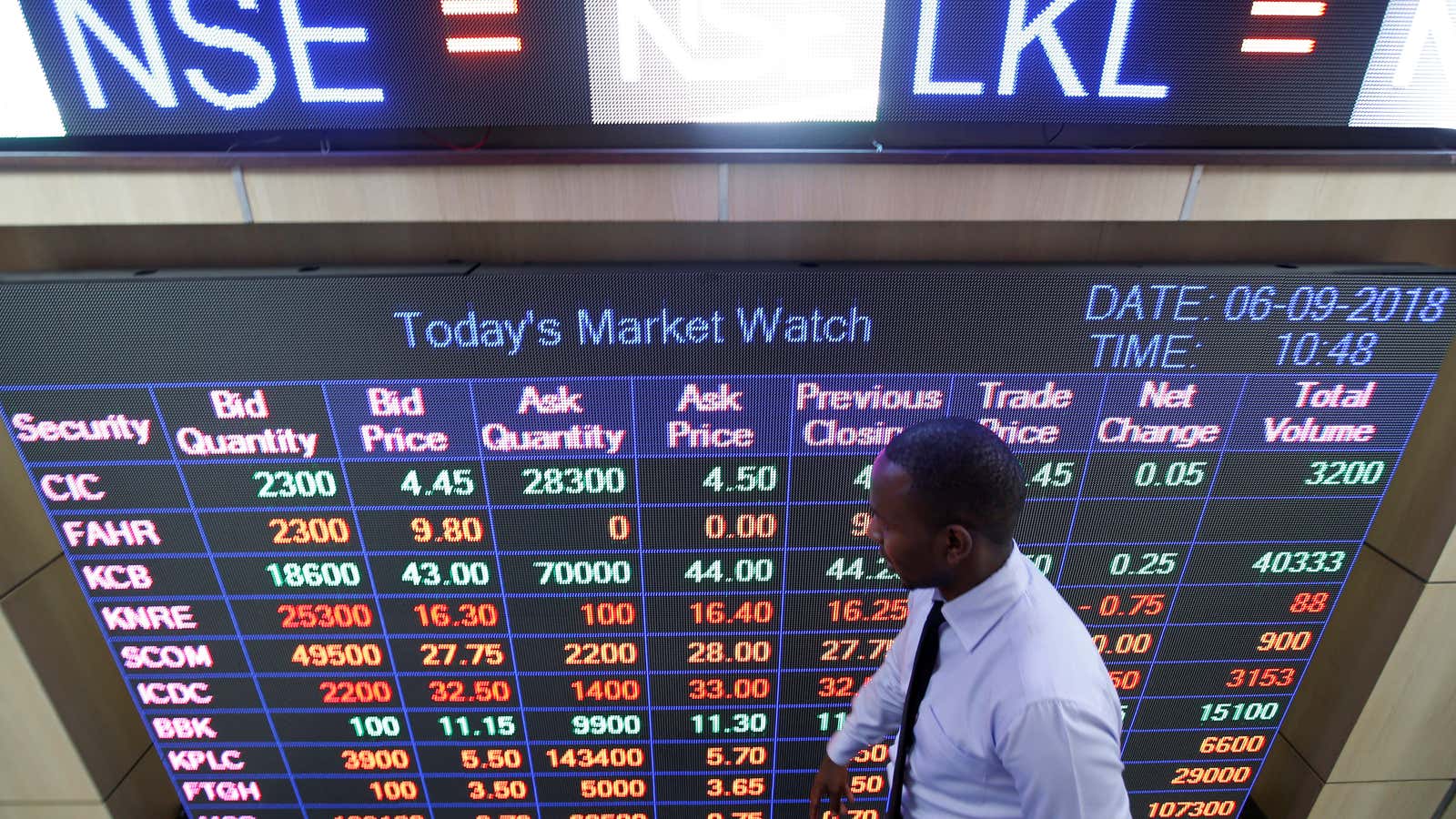African economies will require significant work to compete at on global scale.
In the latest Global Competitiveness Index—a report compiled by the World Economic Forum—African countries make up 17 of the bottom 20 nations. While the global median score is 60, the median in sub Saharan Africa (45.2) is the lowest for all the regions analyzed. The annual index ranks countries based on 12 pillars based broadly on these factors: an enabling environment, markets, human capital and an innovation ecosystem. Each of the 140 countries are ranked based on their scores out of 100.
Mauritius and South Africa are among the few bright spots with both being the only two African nations in the top half of the index. Mauritius’ top ranking is hinged on scoring high on pillars, especially strong institutions. Its 62.9 score on institutions is particularly considered a “considerable competitive advantage” in sub Saharan Africa as 65% of economies in the region score below 50.
Across the board, sub Saharan Africa posts the weakest average regional performance on 10 out of the 12 pillars analyzed, including information communications technology adoption and the human capital pillars of health and skills.
As Quartz has previously reported, internet costs are higher in Africa than everywhere else while internet speeds across Africa are still far below the global minimum standard. The scale of human capital spending is also reflected the World Bank’s first ever Human Capital Index released this month. Nigeria—Africa’s largest economy—ranks 152nd of 157 countries analyzed and Africa accounts for the entire bottom 10.
Boosting scores on future indexes and creating more competitive economies, the report says, will depend on how ”old developmental issues”—mainly weak institutions, poor infrastructure and skills deficit—are resolved. “The much-vaunted economic leapfrogging will not happen unless these issues are addressed decisively,” the report adds.
Sign up to the Quartz Africa Weekly Brief here for news and analysis on African business, tech and innovation in your inbox
